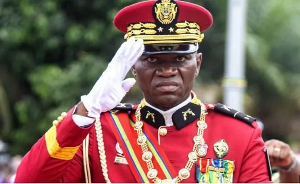Kasoa (C/R), March 13, GNA - The African Development Bank in collaboration with the Ghana Government on Tuesday launched a 41.67 million dollars Urban Poverty Reduction Project (UPRP) at Kasoa in the Central Region, for 12 districts.
The towns are Accra, Tema, Kumasi, Sekondi/Takoradi, Wenchi, Agogo, Akim Oda, Koforidua, Ho, Apam, Swedru and Kasoa. The project to be undertaken in five-years was aimed at enhancing Ghana's effort at achieving the Millennium Development Goal that called for a reduction by half the proportion of the poor living on less than a dollar a day.
The specific project objectives are to improve socio-economic growth of poor urban settlements through better participatory management, job creation, public/private partnership and governance at the local level; to improve livelihoods in urban and peri-urban zones through increased access to basic quality services and socioeconomic infrastructure and to facilitate access to income generating activities through capacity building and strengthening the urban small-scale enterprise sector.
Professor Yaw Gyan-Baffour, Deputy Minister of Finance and Economic Planning, who launched the project said Ghana, since independence had made efforts in responding to poverty and deprivation. "In spite of all these efforts, the Ghana Living Standard Survey indicated that as of the year 2000, 39 per cent of Ghanaians were poor, while the Core Welfare Indicator Questionnaire (CWIQ) survey conducted in 2003 indicated that 36 per cent of Ghanaians were poor". He said even though the rate is supposed to be falling, "but whatever the level is, it is still undesirable".
Prof. Gyan-Baffour said although poverty was a phenomenon that was with Ghanaians and would continue to exist, "Government believes that poverty reduction efforts should aim at assisting each household to produce enough to meet its needs".
This, he said, could be attained by making the poor more productive through wealth creation.
He said based on the assumption that cities were wealth-generating poles of attraction for investments and capital, the conceptual framework underlying the project was that strategic urban planning directed at the poor was essential for economic growth and sustainable development.
"The urban focus of the intervention will strengthen national economic growth and promote public-private partnerships at all levels of Government.
"Furthermore, this project has been formulated in response to the determination of government to pursue the decentralization programme with the best practices drawn from the Social Investment Fund (SIF) demand-driven approach to community-based development," he said. Prof. Baffour said the Ministry of Local Government, Rural Development and Environment was therefore the executing agency while the SIF was entrusted with the responsibility of an implementing agency. Mr. Abraham D. Odoom, Deputy Minister of Local Government, Rural Development and Environment, who chaired the function said the AfDB had already done its first disbursement of 770,750 dollars as at September 2006, out of which 13,4830 was expended as at December 2006.
He said although the Ministry would play the oversight role, it was the Metropolitan, Municipal and District Assemblies (MMDAs) that had the primary responsibility for implementing the project activities at the local levels.
"The onerous task therefore falls directly on the participating MMDAs," Mr Odoom said, adding that all the MMDAs that had been selected for the project should ensure that they met their obligation of contributing towards the success of the project.
General News of Tuesday, 13 March 2007
Source: GNA
















